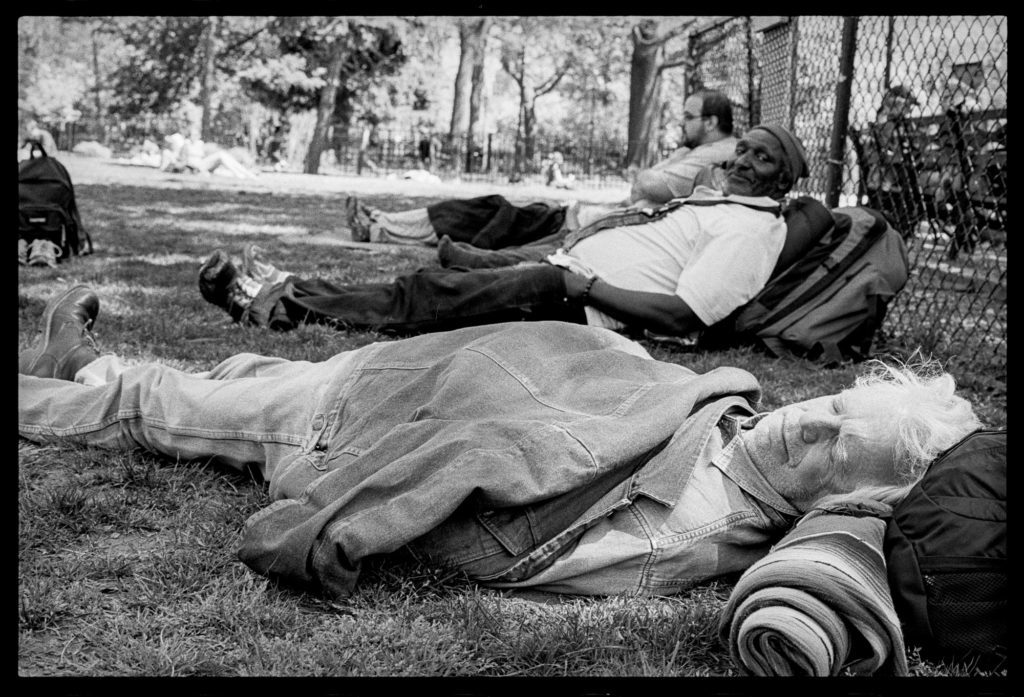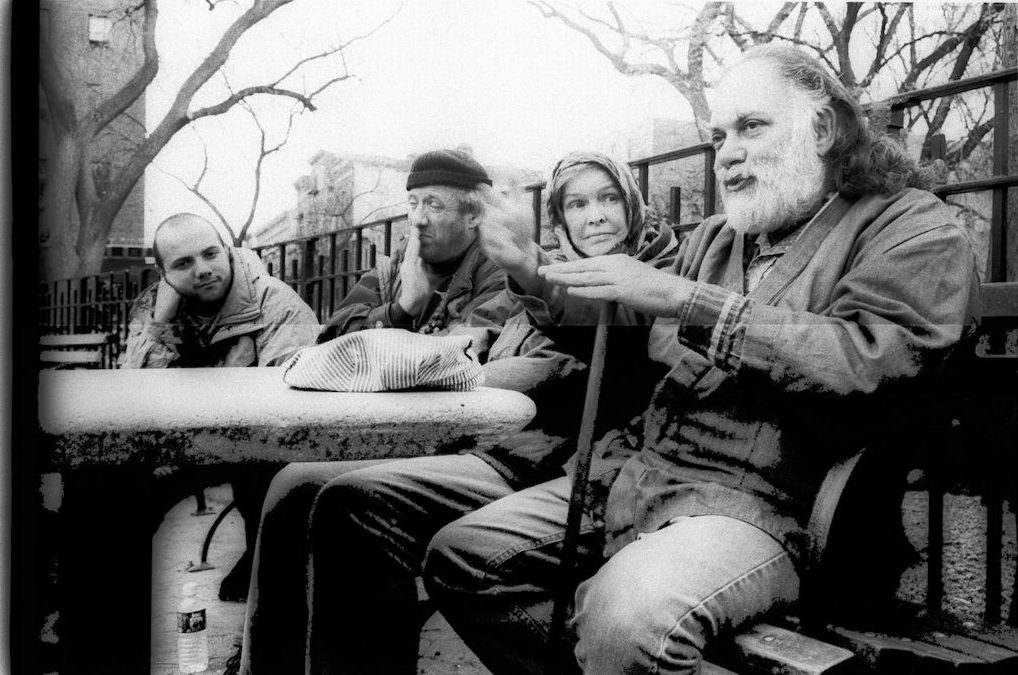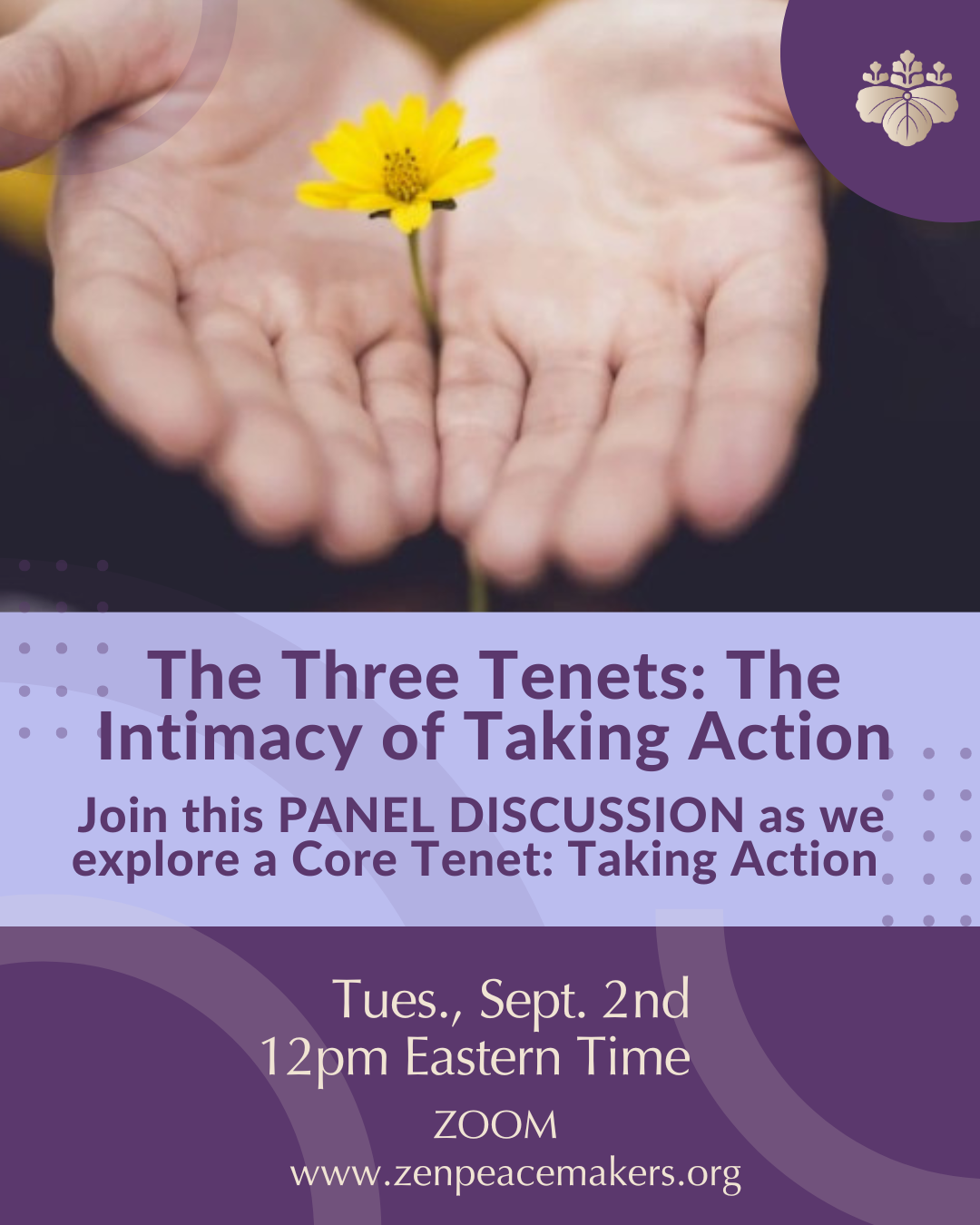ריטריט רחוב

- Grover Genro Gauntt - מנהיג נסיגת רחוב
"כשאנחנו הולכים...להעיד על החיים ברחובות, אנחנו מציעים את עצמנו. לא שמיכות, לא אוכל, לא בגדים, רק עצמנו".
– מתוך מתן עדות מאת ברני גלסמן
ביום הולדתו ה-55 של ברני בינואר 1994, הוא הוביל את נסיגת הרחוב הראשונה בוושינגטון די.סי., והרהר בשאלה מה לעשות כדי לשרת את אלה שנדחו על ידי החברה, אלה שעוניים ואלה עם איידס. כשחזר הביתה, הוא דן בחזונו של מיכל עבור אנשים שרוצים לעשות מעורבות חברתית מבוססת רוחנית עם אשתו המנוחה, סנסיי סנדרה ג'ישו הולמס. הם החליטו לפתח את מסדר העושה שלום בזן, מסדר דתי בעל מרכיב עשייה חברתי חזק שיעיד ברחובות, באתרי זוועה ויפגוש את צרות העולם.

Street Retreat participants spend the week on the street, begging for money, finding food, shelter, and bathrooms. In doing this they are given a powerful opportunity to reflect on themselves and others. By spending this time on the street, participants come closer to the lives of those who live on the streets, reflect on giving and impermanence, and recognize the humanity all people share.
All retreats share some features: participants will be together most of the time, breaking into smaller groups for short periods during the day, always secured by buddies; the full group gathers twice a day for meditation, the Gate of Sweet Nectar liturgy, and sharing circles using the Way of Council; nights are spent together as a group.
From 'Plunges,' spring many other practice forms, including the Bearing Witness retreats in Auschwitz-Birkenau, Rwanda, Bosnia-Herzegovina, and the Native American plunges.
Street retreats have been conducted in many cities, from Rio de Janeiro to Jerusalem, from Paris to Piraeus. Sometimes they are coupled with a theme, such as bearing witness to refugees or tracking the path of arms and wars.
– ברני גלסמן ( ראיון 1999 )
- Do not shave or wash your hair for five days before the retreat. This way the retreat experience begins before leaving home.
- Besides the clothes you are wearing bring only an empty bag (shopping, plastic) or small, not-new day pack for collecting food from shelters. Women may bring one change of underwear and women's hygiene products. Wear old clothes, as many layers as you feel appropriate for the time of year. Bring or wear a light blanket that will roll up.
- Bring a poncho or some kind of rain gear, preferably something old or makeshift.
- Wear good, but not new, walking shoes. The retreat involves a great deal of walking.
- Bring one piece of photo ID only, your driver’s license or a state ID.
- Do not bring any money, credit cards, illegal drugs, alcohol, weapons, or cellphones.
- Do not wear any jewelry, including earrings and watches.
- Bring no books, conveniences or personal items like toothbrushes.
- Prescription medications are fine.
- Bring a plastic water bottle if you like, or grab one from a trash can.
- Participants will sleep on the streets and avoid shelters in order to preserve beds for those in need.
Registration fees and how they are used vary. Usually, most of the fee is donated to homeless services that supported participants during the retreat, with a portion offered to the retreat's guiding teacher. Sometimes participants are encouraged or required to raise the money for their registration fee by asking for support from friends, family, and associates, so begging can start right from the beginning. In the Zen Peacemakers tradition this kind of begging is called Mala practice, since the practitioner "wears" the support of everyone who donated to their cause like a mala necklace. When doing a mala you explain to your supporters your reasons for attending a Street Retreat, and are encouraged to report back to them afterwards as a way of returning their gift. Mala practitioners are often surprised at the messages and support they get. You can learn more about Mala Practice here.
ריטריטים ברחוב מוצעים על ידי מנהיגים מוכרים וקבוצות שותפים של ZPI.
בקר באתר החברים שלנו לרשימה של כל האירועים הקרובים.
למידע נוסף על מתן עדות לחוסר בית, קרא Bearing Witness: A Zen Master's Lessons on Living a Life That Matters מאת ברני גלסמן.


